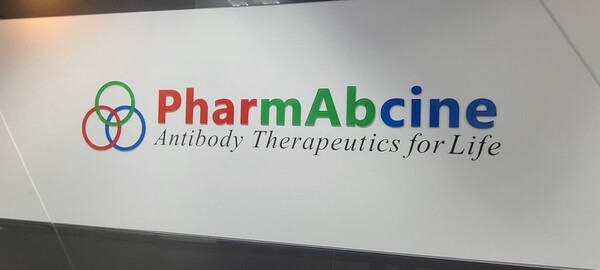PharmAbcine, once hailed as a promising Korean developer of antibody-based cancer therapies, will be delisted from the Kosdaq market on June 11, following a decision by the Korea Exchange (KRX) citing concerns over the company’s financial viability and lack of managerial transparency.

According to a public disclosure by the KRX on Tuesday, the Kosdaq Market Committee has finalized the delisting process for PharmAbcine, triggering a seven-day grace period of liquidation trading from May 29 to June 10.
PharmAbcine's stock has been suspended from trading since January of this year at a stock price of 2,915 won ($2.12). As of Dec. 31 of 2023, the company had 27,509 retail investors, with minority shareholders holding more than 84 percent of the company's total shares.
The decision followed a comprehensive review of the company’s business continuity and internal governance. Although PharmAbcine submitted a self-improvement plan in April, the exchange ultimately found it insufficient.
Founded in 2008, PharmAbcine entered the Kosdaq in 2018 through Korea’s special technology exception program, which allows biotech firms with strong R&D capabilities, but have no revenue or profit, to go public based on the scientific merit of their pipeline.
The company, established by Yoo Jin-san, built its platform on a vast human antibody library exceeding one billion variants and was recognized early on for its potential in the immuno-oncology field.
However, the company’s lead pipeline, olinvacimab, an experimental anti-cancer monoclonal antibody, saw multiple clinical setbacks.
In 2022, PharmAbcine terminated its phase 2 trial for recurrent glioblastoma (rGBM) in the U.S. and Australia. The following year, the company voluntarily withdrew another trial for metastatic triple-negative breast cancer (mTNBC) combining olinvacimab with Merck’s immune checkpoint inhibitor Keytruda (ingredient: pembrolizumab) in Australia.
The company cited slow patient enrollment and the risk of prolonged studies, choosing instead to redirect limited resources to other programs.
These pipeline disruptions came as PharmAbcine’s financial position deteriorated.
The company fell short of the 30 billion won annual revenue requirement five years post-listing and recorded continued pre-tax losses exceeding thresholds set by the KRX.
Efforts to inject fresh capital repeatedly failed. In June 2023, a 30 billion won private placement was announced, but PharmAbcine Diamond Club Companion Growth Equity No. 1, the lead investor, ultimately defaulted on the payment. As a result, the company was penalized with 11 demerit points for disclosure failure.
Another failed fundraising attempt followed in December 2023, when PharmAbcine sought capital from HP Bio and Choi Seung-hwan, former CEO of construction firm Hanchang. That effort also collapsed when the counterparties did not fulfill the payment, pushing PharmAbcine’s annual disclosure penalty score to 15 -- automatically triggering a delisting eligibility review by the KRX.
In a surprising move at the end of 2023, the company’s ownership shifted when Yoo relinquished control to Tire Bank Group Chairman Kim Jeong-kyu, who acquired shares worth approximately 8.56 billion won.
The acquisition sparked speculation about a possible turnaround. PharmAbcine attempted to pivot into new revenue streams, adding automobile tire and parts sales to its business objectives and merging with Tire Bank subsidiary Joeun Tire.
However, these diversification efforts failed to meaningfully improve the company’s financial standing.
For fiscal year 2024, PharmAbcine reported revenue of 3.89 billion won and an operating loss of 7.71 billion won. Net loss stood at 4.92 billion won.
Research and development spending reached roughly 5 billion won.
Despite a relatively modest debt ratio, with total capital of 47.3 billion won and liabilities of 17.2 billion won, the company was unable to meet the KRX’s listing maintenance standards.
PharmAbcine had previously faced delisting in July 2023, but appealed the decision and was granted a grace period to implement corrective measures.
Its final report on improvement efforts failed to persuade regulators, leading to the definitive decision this month to remove the company from the stock exchange.
Related articles
- PharmAbcine to be delisted from Kosdaq amid financial and operational struggles
- PharmAbcine begins dosing of ‘PMC-309’ in Australian patients
- PharmAbcine gets Australian nod for p1 clinical trial of Keytruda-combined cancer drug
- PharmAbcine, Merck to co-develop ‘VISTA antibody’ immunotherapy for phase 1 study

